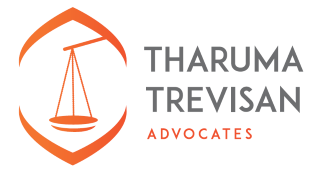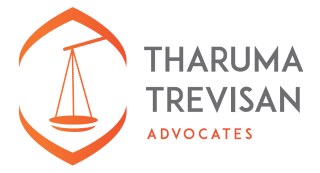
Case Brief: Peter Mwau Muinde and another -vs- Insurance Regulatory Authority and 2 others.
By Quincy Jesse Kiptoo LL.B. (Hons), CPM, Dip in Law
Case Brief: Peter Mwau Muinde and another -vs- Insurance Regulatory Authority and 2 others.
Peter Mwau Muinde and another filed a Petition in Court seeking a declaration that the Insurance Regulatory Authority and Invesco Assurance Limited had violated their rights and that they should be ordered jointly and severally to settle all decretal sums and costs entered against the Petitioners in accidents from which they had obtained insurance cover under the Insurance (Motor Vehicle Third Party Risks) Act and other ancillary orders. The accident claims were particularized before Court.
It was deposed that Peter Mwau was a retired police officer who owned two motor vehicles that were operating as public service vehicles. The vehicles were insured by Invesco Assurance Company Ltd. The Insurance company had even defended the actions in Court.
According to the agreement between Peter and Invesco, the insurance company was to meet the claims within 90 days of being lodged. This was not done leading to auctioneers to attaching the personal properties of the Peter Mwau.
Peter lamented that this amounted to double jeopardy. On one hand, he is mandated by the state to pay premiums which he did yet on the other hand, his personal property was attached by auctioneers.
He pleaded that it is against the public interest for the insurance company to fail to fulfil its obligations under the watchful eye of the Insurance Regulatory Authority and the State.
The Insurance Regulatory Authority and the State despite having the powers to monitor, supervise and regulate the insurance players failed to perform its role in noting that the invesco faced liquidity issues and act early enough to warn policy holders and protect the public.
Peter contended that the Insurance Regulatory Authority failed in its regulatory duty to supervise the operations of the insurance company in order to ensure that those who are consumers of their insurance services do not suffer as a result of its actions or inactions.
The Court noted that where it is alleged that as a result of the failure by a state organ to carry out its statutory mandate, a person’s rights are threatened with violation or have been violated, the matter transcends the contractual arena and enters the constitutional arena.
The Court illustrated that according to section 3A of the Insurance Act, the objects and functions of the IRA are to ensure the effective administration, supervision, regulation and control of insurance and reinsurance business in Kenya, to formulate and enforce standards for the conduct of insurance and reinsurance business in Kenya; to license all persons involved in or connected with insurance business, including insurance and reinsurance companies, insurance and reinsurance intermediaries, loss adjusters and assessors, risk surveyors and valuers and to protect the interests of insurance policy holders and insurance beneficiaries in any insurance contract inter alia
It was not contested that the Insurance Co failed to meet its statutory obligations under section 10 of Insurance (Motor Vehicles Third Party Risks) Act, Cap 405 Laws of Kenya.
Upon contest, the Court clarified that an insurance cover is not just a contractual relationship between the insured and the insurer.
The relationship in fact gives rise to a statutory obligation on the part of the insured. The fact that the relationship is regulated by statute shows the importance attached by the State to such relationships. It was considered that owing to the fact that such relationships affect third parties to the contract such as passengers and those who suffer injury while using the services covered by the insurance policy, it is only expected that the State would also take a keen interest on how the insurance industry is being run so as to give meaning to the compulsory requirement to take out insurance covers over vehicles.
The Court asserted that when motor vehicle owners are compelled to take out insurance policy covers, they have legitimate expectation that the State will efficiently regulate that sector so that in the event that they are called upon to compensate those who suffer injuries that are covered by the policy, they will be protected from having to directly compensate the injured.
The Court borrowed a leaf from Justice Mativo who had earlier ruled that the Insurance Regulatory Authority is bound to adhere to mandate stipulated in the statute creating it and its actions must conform to the constitutional prescriptions as clearly provided in Kenya’s transformative Constitution.
The Court posited that it serves no purpose for the State to compel people to take out policy covers when at the end of the day, the State does not ensure that people benefit from the services they are paying for. The people have delegated their authority to the State in expectation that the State will undertake its mandate as expected by the people.
The Court found that when the State or its organs fails to do so, then the State must compensate the people who suffer as a result of its failure to live to its expectation. Otherwise, the people may then recall their mandate which they delegated to the State and its organs in which event we shall have anarchy
Therefore, where the State fails to protect the insured against unscrupulous insurers yet ensure that the insured take out insurance covers at their costs, it is only just that the State takes responsibility for its failure to regulate the players in the industry otherwise it would be assisting those insurers who use statutes as instruments of fraud.
The Court queried that Insurance companies do not just collapse. Before they do so, there are usually tell-tale signs or indicators which can easily be discerned by hawk eyed officers of the Insurance Regulatory Authority if they are keen enough. They should not wait until the insurer cannot meet its statutory obligations before moving in to perform the last rights.
Once the said signs become apparent, the Insurance Regulatory Authority should move with speed and invoke its powers. The Court clarified that it is not in every case where an insurance company collapses, that the IRA should be held liable. The IRA won’t be liable where it is shown that it took all the necessary steps to ensure that the insurance company operates within the law. They must show to have exercised due diligence. Sized.
In this case, the IRA did not show what step they took to ensure that the insurance company operated within the law. Its failure to explain itself only meant that it never performed its mandate under the Insurance Act and for that it was constitutionally liable
In the end, Court declared that the Insurance Regulatory Authority and the Insurance co breached the fundamental rights and freedoms of the petitioners.
The Insurance Regulatory Authority was ordered to meet all decretal sums entered against the Petitioners in the cases from which they had obtained an insurance cover under Section of the Insurance (Motor Vehicles Third Party Risks) Act from Invesco Assurance.
Latest Posts
Step by Step Guide to Subdvision of Land in Kenya
Agnetah Muli LL. B, KSL Dip. What is Subdivision? The process of subdivision involves the division of land into two or more parcels. The purpose is to...
COMPREHENDING REDUNDANCY IN EMPLOYMENT LAW – KENYA
“Fairness in all forms of termination is the staple of labour law”- Anon By Quincy Jesse Kiptoo LL.B. (Hons), CPM, Dip in Law The word Redundancy...

